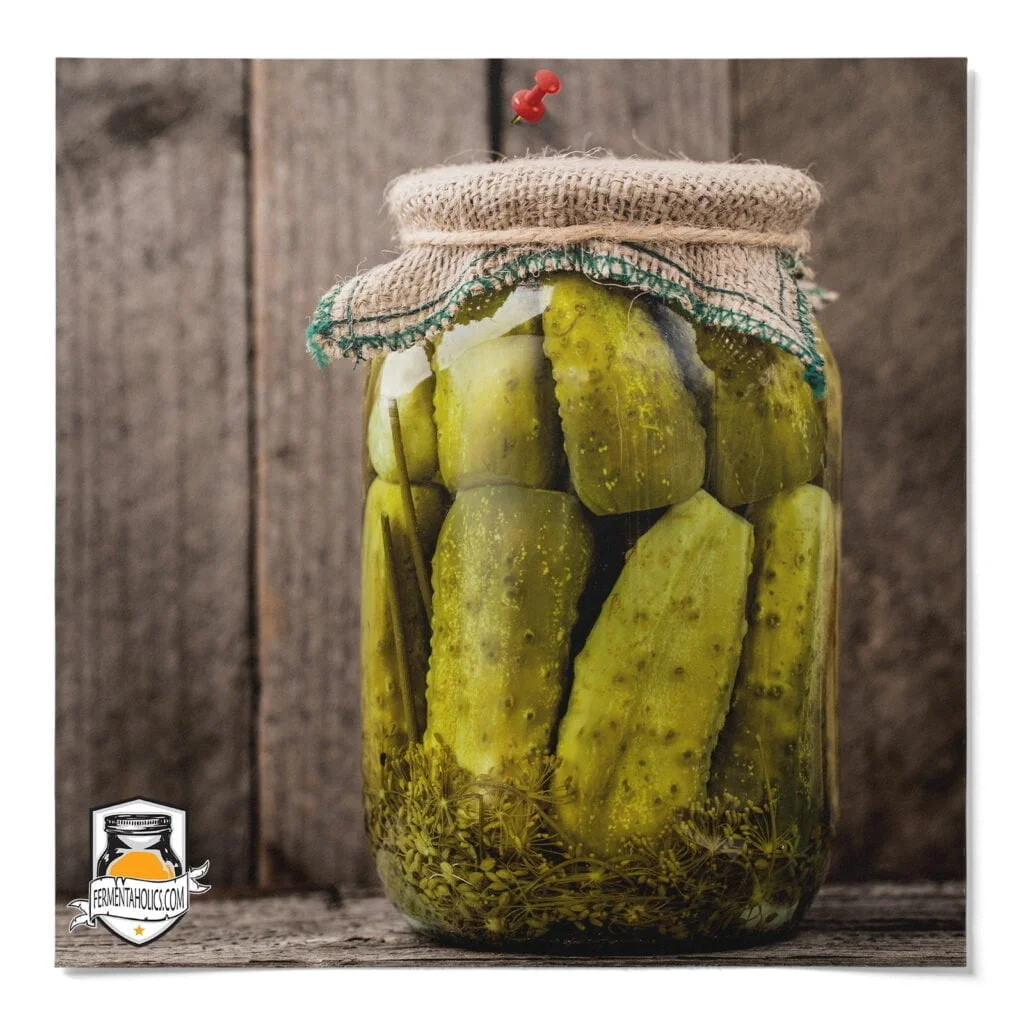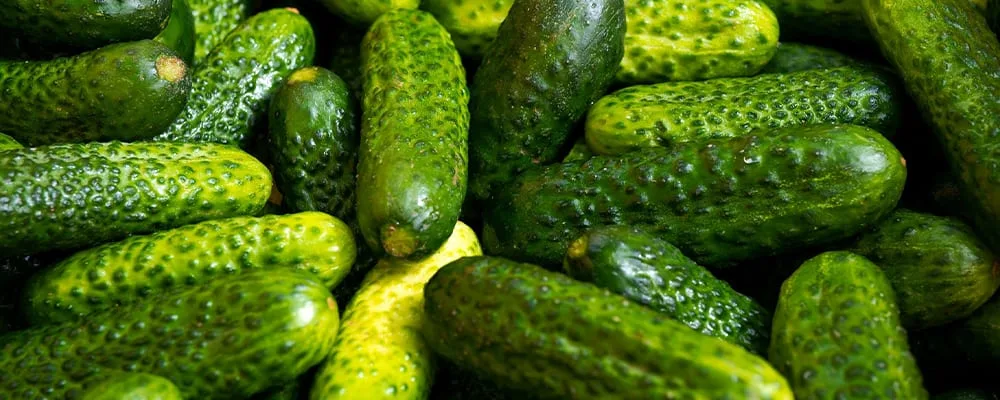
At first thought, pickles typically produce a mental image of a cucumber soaked in vinegar. While those are super tasty, they are just a small glimpse of the world of pickle possibilities. Just in the cucumber realm, there are bread and butter, dill, half-sour, full-sour, sweet, gherkin, relish, and the list goes on.
So, are pickles fermented? Some are! Pickling refers to the preservation of food in an acidic solution. Some fermentation, such as lactic acid fermentation, produces acid naturally, resulting in a pickle. Other types of pickles utilize vinegar, which is the product of fermentation. Are vinegar pickles fermented? It’s up for debate. While the vinegar is fermented, there’s not much active fermentation going on during the pickling process. Rather, the vinegar is acting more like a marinade, penetrating the food, providing flavor, and a slight change in texture.
A pickle, as a noun, generally refers to a cucumber that has soaked in vinegar or fermented. As a verb, pickle becomes much more versatile, referring to preserving food in an acidic medium. You can pickle vegetables, fruit, beans, and some more diverse foods like herring, eggs, or pig’s feet!

We can split pickles into two categories, vinegar and fermented, dictated by the pickling liquid. Vinegar pickles use a brine made up of vinegar, water, spices, and typically a little sugar. Since the acid is added right from the beginning, vinegar pickles are relatively quick to produce. Fermented pickles use a salt brine, along with spices, and time. The saline brine creates an environment that promotes the growth of lactic acid bacteria. While the fermented pickles take longer, there are some health benefits such as probiotics, enzymes, and vitamins. The flavor is also different between vinegar and fermented pickles. It’s fun to try both!
There are benefits to both vinegar and fermented pickles, so neither one is better; they are just different.
If you are looking for a quick solution, then vinegar pickles are the way to go. Our vinegar pickle pickling kit is a great option to get you started. Vinegar is a powerful tool to bring enormous flavor to a dish, and using veggies as a vehicle for vinegar adds even more. If you’ve ever had pickled onions on a taco, you know what I mean. Vinegar is also great at preserving, so if you have excess veggies, you can place them in a vinegar brine to extend their life and reduce your food waste.
If you are looking for a way to preserve food while boosting its health benefits, opt for fermentation. The fermentation process produces lactic acid, which acts as a preservative. The lactic acid bacteria consume any sugars in the food and convert them to lactic acid, enzymes, and vitamins, making fermented pickles a great addition to your diet. If you’re looking to get started fermenting foods, our complete mason jar fermenting kit includes everything you need to get started down the path of fermenting foods.
Here are two essential brine recipes, one vinegar and one fermented, that you can use as a guide for your own pickles!
1
Quart10
minutesThese Vinegar and Salt Brine recipes are each for one quart.
2 Cups Water
2 Cups Distilled White Vinegar
2 TBSP Pickling Spice
1 TBSP Sugar
4 Cups Water
32 Grams Salt – Kosher Pink Himalayan sea salt – Avoid Salt With Iodine
2 TBSP Pickling Spice
1 TBSP Sugar
Bring all of the ingredients except for the vinegar to a boil, stir to completely dissolve the sugar.
Let the brine completely cool and add in the vinegar.
Now use as desired to pickle onions, carrots, cucumbers, cauliflower, watermelon, or whatever you want!
Bring everything to a boil, stir to dissolve the salt and sugar.
Let the brine cool completely and then use it as desired to ferment whatever you want!
When fermenting, make sure to keep everything submerged under the brine using some fermentation weights

No, not all pickles are fermented. Some are simply cucumbers soaked in vinegar, which is a pickling process but not a fermentation process.
Fermented pickles are made through the process of lacto-fermentation, where natural bacteria present on the vegetable convert sugar into lactic acid, acting as a natural preservative. Vinegar pickles are made by soaking cucumbers in vinegar. The vinegar itself acts as the preservative, instead of lactic acid produced through fermentation.
To determine if a pickle is fermented, you can check the label for ingredients. Fermented pickles will not include vinegar in their ingredients list but will include salt. They are often labeled as “lacto-fermented” or “naturally fermented.”
Fermenting pickles typically takes between a few days to a few weeks, depending on the recipe and desired level of fermentation.
Yes, you can make fermented pickles at home. All you need are cucumbers, salt, water, and the right conditions for fermentation to occur.
Salt is critical in fermenting pickles because it helps to create an environment where harmful bacteria cannot survive, but beneficial lactobacillus bacteria can, which are necessary for the fermentation process.
